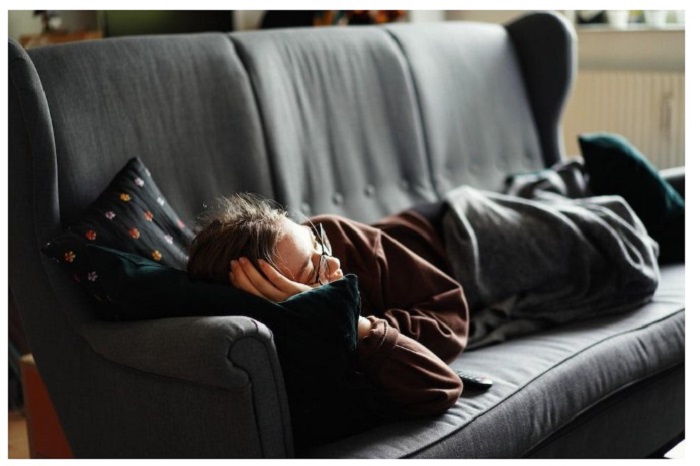How Do You Make Your Winter Sleep Routine Better?

Winter days are the days with longer hours and cooler temperatures. The best time of year to snuggle up under a blanket is often during the winter. We became lazy and wanted to stay in bed during this comfortable season. It is a fantastic opportunity to sleep more in winter. But in winter days are cooler and also there may be a chance of any disasters like storms. You can check weather data from any source to be well prepared before any disasters. These seasonal shifts, however, may make it difficult for some individuals to obtain a decent night’s sleep. A bad night’s sleep may make you irritable, unmotivated, and chilly. Here are some tips to help you get sufficient sleep this winter.
1. Get Enough Sunlight during Daytime
While it may be challenging to stay outside your house in winter, exposure to natural light is the best method to manage our circadian rhythms, which regulate our sleep cycles. It’s highly recommended to try to sneak outdoors periodically throughout the day. Allow the eyes to devour light for 30 to 45 minutes of exposure to direct sunshine daily. Remember not to wear or use sunglasses or a visor will provide the body with the necessary nutrients to produce enough melatonin.
2. Focus on your Diet
On colder days in winter, we try to keep ourselves warm by eating a substantial, satisfying meal. So be careful when you eat these meals. Your body has to work continuously and harder to digest a large meal eaten shortly before bed. This makes it challenging for you to fall asleep during the night. Eating a meal three hours before bedtime will help your body prepare for sleep. Digestion will start in a horizontal position, and the body may focus on healing.
3. Nap Smartly

The long, often dark winter days make sleeping seem even more appealing. But napping during the day may not be great for you if you have trouble falling asleep at night or suffer from insomnia since it lessens your “hunger” for sleep at night.
Yet, only some are in the same situation. Consider cutting your nap short if you need it to get through the remainder of the day so that you can get enough rest at night. In general, short naps have little impact on how well most individuals sleep at night.
4. Watch Out for SAD
The cyclical rhythm of the seasons causes seasonal affective disorder (SAD), a temporary kind of depression. The chilly weather and lack of sunlight might affect one’s mood. This can adversely affect our body, like mood swings and irritability.
Also, the research found that it could cause hypersomnia, another sleep disorder involving excessive daytime drowsiness or overnight sleeping. If you suffer symptoms, consult your doctor for advice on potential therapies, including vitamin D supplements, light therapy, cognitive behavioral therapy, or antidepressant medications.
5. Drink Enough Water
The body needs enough water to dehydrate before sleeping. Dehydration affects this process. Drink fluids in the afternoon to avoid using the restroom in the middle of the night. You may calculate how much water you need to drink by halving your weight in pounds. This chart displays the recommended daily water intake in ounces.
6. Daily Workout

When it’s chilly outdoors, many people stop working out. Yet, if you want to continue getting enough sleep during the winter, you must have a strategy for keeping up your exercise routine. Research has revealed that those who exercise often sleep substantially better. So start moving by hitting the gym, putting your yoga mat out, going for a short jog, or dancing to your music. You’ll sleep better in the winter if you keep active.
Conclusion
Getting enough sleep is one of the most crucial things you can do for your physical and mental health. You might do various activities to raise the quality of your sleep, from comprehending how sleep functions to developing a soothing night time routine. Making your bedroom chilly, dark, and quiet may create the perfect atmosphere for sleeping and staying asleep. Avoiding screens and caffeine around an hour before bed may also dramatically enhance the quality of your sleep.
Subscribe & Get E-Mail Updates Delivered
Our informative Design related articles featuring the latest Resources for Web Designers & the Web get delivered via email dialy. Thousands of readers have signed up already. Why don't you subscribe as well, and get articles delivered to your inbox?






Leave a Reply